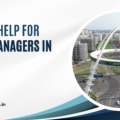Linkedin help for CA
Welcome, number crunchers! As a Chartered Accountant, your expertise goes beyond balancing sheets and analyzing tax codes. In today’s digital age, building a strong online presence is crucial for professional growth and new opportunities. And what better platform for showcasing your financial prowess than LinkedIn? But navigating this professional jungle as a CA can be tricky. Don’t worry, LinkedInHelp is here with your CA-specific tips to conquer the LinkedIn world:
1. Profile Perfection: Your Gateway to Growth:
- Headline: Don’t bury the lead! Instead of “Chartered Accountant,” go for “Tax Guru Streamlining Businesses” or “Financial Wiz Building Sustainable Growth.” Keywords matter, so use industry terms like “audit,” “forensic accounting,” or “blockchain accounting” to catch recruiters’ eyes.
- Summary: Tell your story, not your resume. Quantify your achievements. Saved a client millions with your tax optimization strategy? Increased shareholder value with your financial modeling? Quantify the impact and showcase your value proposition.
- Keywords: Sprinkle the magic dust. Include industry-relevant keywords throughout your profile. This way, potential employers and clients can easily find you when searching for specific expertise.
2. Network Like a Master Connector:
- Follow the Big Leagues: Connect with industry leaders, accounting firms, and financial institutions. Join relevant LinkedIn Groups like “Chartered Accountants of India” or “Taxation Professionals Network.”
- Engage in the Conversation: Share your insights on current economic trends, accounting best practices, or even the challenges of the CA profession. Tag relevant stakeholders and participate in discussions to build meaningful connections.
- From Online to Offline: Use your online network as a springboard for real-world interactions. Attend industry events, conferences, and meetups to connect face-to-face and build lasting relationships.
3. Content is King (and Queen) of the Algorithm:
- Share Your CA Wisdom: Don’t just post job openings. Write articles on complex accounting topics, financial planning tips for businesses, or the future of the accounting profession. Become a thought leader and establish yourself as an expert.
- Beyond Debits and Credits: Showcase your diverse interests. Share your passion for volunteering, supporting financial literacy initiatives, or even writing on non-financial topics. This humanizes your profile and attracts like-minded connections.
- Visuals: Worth a 1040 Form: Pictures and infographics can grab attention and make your content more engaging. Use visuals to explain complex concepts or showcase your achievements in a more impactful way.
Bonus Tip: Consistency is key. Be patient, engage regularly, and build meaningful connections. Celebrate your accomplishments, share your expertise, and showcase the value you bring to the table beyond the number crunching.
With LinkedInHelp by your side, your LinkedIn profile will shine brighter than a clean audit report. Now, go forth and conquer the online world, while still mastering the numbers game.
#LinkedInHelp #CACareers #NetworkingTips #ContentMarketing #BeyondTheBalanceSheet

LinkedIn for master’s degree students is a platform to build their professional network and enhance their career prospects. Here’s a guide tailored to help master’s students optimize their LinkedIn profiles:
Profile Picture:
Use a clear and professional photo where you are dressed appropriately. A simple headshot with a neutral background works well.
Headline:
Craft a concise and informative headline that reflects your master’s program, specialization, and career interests. For example, “Master’s in Marketing | Aspiring Digital Marketer.”
Summary:
Write a well-written summary that highlights your masters degree or entire educational background, key skills, and career goals. Mention your master’s program, academic achievements, masters internship, projects undertaken and any relevant experiences.
Education:
List your master’s degree program curriculum and electives, the university or institution branding, field of study, and anticipated graduation date. Highlight any relevant coursework or projects.
Skills:
Showcase skills gained during your master’s program, such as data analysis, project management, software proficiency, and soft skills like communication and teamwork.
Projects and Research:
Describe any significant projects, research, or theses you’ve undertaken during your master’s program. Highlight your role, methodologies, and outcomes.
Internships and Work Experience:
If applicable, include internships or part-time jobs related to your field. Describe your responsibilities and accomplishments to showcase your practical experience.
Networking:
Connect with classmates, professors, alumni, and professionals in your field. Personalize connection requests with a brief introduction.
Engagement:
Engage with industry-related content by commenting, sharing, and writing posts. This demonstrates your interest and knowledge in your field.
Recommendations:
Request recommendations from professors, project supervisors, or internship mentors. Their endorsements add credibility to your profile.
Career Interests:
Specify your career aspirations, whether it’s entering a specific industry, pursuing further education, or a particular job role.
Volunteer and Extracurricular Activities:
Highlight any volunteer work, clubs, or organizations you’ve been involved with during your master’s program. This showcases your interests and leadership skills.
Certifications and Courses:
If you’ve taken relevant online courses or obtained certifications, list them to showcase your additional skills and knowledge.
Custom URL:
Personalize your LinkedIn URL to make it look cleaner and more professional.
Privacy Settings:
Adjust privacy settings to balance visibility with your comfort level. Make sure your contact information is visible for networking purposes.
Consistency:
Regularly update your profile with new achievements, experiences, or skills gained during your master’s program.
Industry Follows:
Follow companies, organizations, and influencers in your industry to stay updated on trends and job opportunities.
Learning Opportunities:
Participate in LinkedIn Learning courses, webinars, and workshops to enhance your skills and knowledge.
Remember, your LinkedIn profile is a dynamic reflection of your academic journey and career aspirations. Regularly engage, network, and update your profile to make the most of your master’s degree experience.
CONNECT one to one with Linkedin experts +91.9830780089
#masters #mastersdegree #students #LinkedIn #Linkedinwriting #Linkedinprofile





